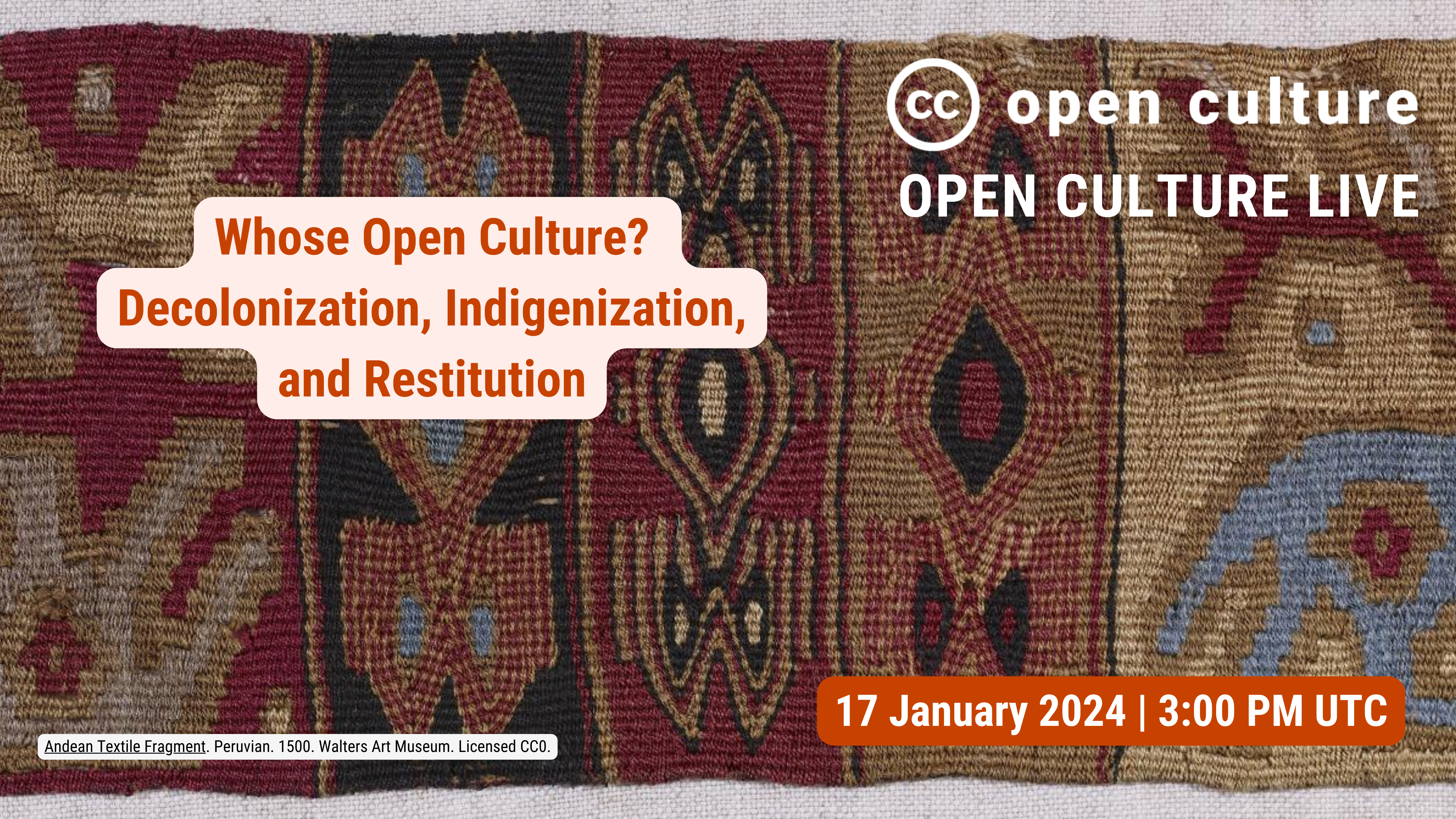Help us protect the commons. Make a tax deductible gift to fund our work. Donate today!

In January we hosted a webinar titled “Whose Open Culture? Decolonization, Indigenization, and Restitution” discussing the intersection of indigenous knowledge and open sharing. Our conversation spanned a variety of topics regarding indigenous sovereignty over culture, respectful terminology, and the legacy of colonialism and how it still exists today. While we strive for more open sharing, it is important to recognize the cases where culture should not be open to all.
The United Nations Declaration on the Rights of Indigenous Peoples had a significant impact on the ability for indigenous people to advocate for their rights, and for institutions to have clearer guidance on the treatment of indigenous cultural expressions. But there is much more to be done. Institutions stewarding indigenous cultural expressions must be patient and take the time needed to build relationships with the communities whose culture is in their collections in order to establish ways of sharing with consideration and consent.
In this webinar, we were joined by:
- Jane Anderson, Vice Chair & Founding Member, Strategic Advisor, Co-Founder, Local Contexts
- Stephany RunningHawk Johnson, Executive Director, Local Contexts
- Camille Callison, University Librarian, University of the Fraser Valley
- Erna Lilje, Curator, Indigenous knowledge & material culture, Nationaal Museum van Wereldculturen
Watch the recording.
Learn More
We shared a reading list in our announcement post, here are some more links as shared by the panelists and by some audience members during the conversation:
- Respectful Terminologies Project for Indigenous People Launches in Canada – SPARC
- National Indigenous Knowledge & Language Alliance: Respectful Terminology
- Te Hiku Media
- Awasəwehlαwə́lətinα wikəwαmok | They Returned Home – Local Contexts
- CARE Principles — Global Indigenous Data Alliance
- Citing Traditional Knowledge or Oral Traditions of Indigenous Peoples – APA Style (Seventh edition) – Subject Guides at Nova Scotia Community College
- Indigitization
- The Sustainable Heritage Network
What is Open Culture Live?
In this series, we tackle some of the more complex challenges that face the open culture movement, bringing in speakers with personal and professional expertise on various topics. Watch past webinars:
Save the date for our next webinar “Maximizing the Value(s) of Open Access in Cultural Heritage Institutions” on 28 Feb at 2 PM UTC.
CC is a non-profit that relies on contributions to sustain our work. Support CC in our efforts to promote better sharing at creativecommons.org/donate
Posted 31 January 2024